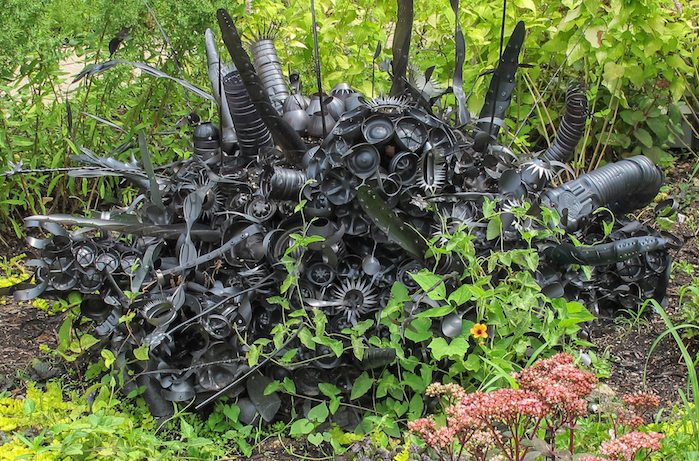
12 Months of Eco-Friendly Sales Goals
How many eco-conscious shoppers do you encounter in your garden center daily? This is still a hugely untapped market when talking about everyday sales encounters and should really be considered a viable business strategy, not just a quick marketing gimmick.
So, what are you doing to increase sales, reduce fears and survive in changing times with this concerned gardener?
Key selling points for green selling may include phrases like:
- Low-energy solution
- Sustainable product
- Non-toxic ingredients
- Low waste (or emissions)
- Recycled materials
The epic drought in the West and more recently the tragic fires in Tennessee have put a brighter spotlight on water usage and conservation. The price of water isn’t exactly going down, so this topic is a natural focus.
Your garden center is a perfect place for educating customers about efficient water use in the landscape and how trees, shrubs and good landscape design can save money AND water.
The battle for posting ideas of designing with superstar succulents has been intense on social media. And yet one big topic, eco-friendly lawn practices, only gets minimal attention.
Is lawn talk a fun and sexy subject? Nope! Photos on Facebook or Instagram are not filled with super-cute ideas for lawns. So finding ways to talk about and sell new ideas for growing a healthy and safe lawn needs to be much more creative to compete for nursery sales. It also offers tons of opportunities to create good customer relationships on this literally hot topic.
Creating Excitement
How inventive could your sales staff get with this if given the opportunity to shine? Could you build displays that demonstrate various lawn types that teach everything from what a proper soil base looks like to seed mixes, or watering techniques that save water and fertilizer comparisons in real time? You can end the season with a party and lawn-mowing race!
While researching for this column I stumbled onto a business offering a “Green Points” program where, with every designated purchase, customers earn “Green Points” which are redeemable for either rewards or a donation to environmental causes.
This is a fascinating option that could potentially help with display and merchandising opportunities year-round, not to mention sales growth. It also could be a neat way to tie in other local businesses and their products too.
Another interesting opportunity of note: Are you showing off your recycled boxes and gift bags? This is a great way to add another dimension to your PR and social media. It’s an excellent opportunity to show how you responsibly source your everyday materials.
Many garden centers offer sections for drought-tolerant trees and shrubs, but what about a drought-tolerant container design section that you change seasonally? Or a section that addresses native plants and native drought- tolerant plants?
As a water conscious lifestyle begins to resonate with more and more customers, you might win another loyal customer by demystifying this entire topic.
Bees have been a growing source for concern in the news, and our customers are getting a bit of this trickling down into their social media feeds along with the plight of the dwindling monarchs.
Concern over this problem has been slowly bubbling up, but we need to support these topics with ways our customers can actively make a difference on their property. How about adding more info to your in-house signage that helps to define plants that are attractive to pollinators, or even having a seasonal “Pollinator Section” for shoppers?
One more green marketing idea is to support environmental initiatives by making donations or taking actions that assist a local environmental cause.
Garden centers can also support the cause by offering environmental incentives for sales — such as planting trees or donating a portion of a sale to an environmental organization. Be sure to communicate your green marketing actions to your customers to reinforce your eco-friendly business practices.
Year-Round Ideas
Here is a list of 12 ideas for eco-friendly topics that your garden center can riff on:
- January: Houseplants that contribute to air quality
- February: Organic or non-GMO seed starting classes
- March: Bare root shrubs that support wildlife with berries and seed heads
- April: Promoting composting and proper mulching technique
- May: Attracting birds with feeders and water features to help with insect control
- June: Build soil health with micro-organisms
- July: Installing rain barrels, tools for efficient watering
- August: Boost the garden with a manure tea
- September: Plant trees for shade and habitat
- October: Attracting beneficial insects, butterflies, mason bees, etc.
- November: Starting cold weather micro-greens
- December: Garden books as gifts for eco-friendly garden planning
Our customers need to understand that their local garden center is a trusted source for information from experts who will give good guidance in a positive and enthusiastic manner by promoting sound horticultural practices and matching customers with the right plants. Our eco-friendly customers are learning from us that step-by-step, they can participate in caring for their spaces in responsible ways.
Is your garden center being a good example and showing what simple things can be done month-by-month to take care of the environment?

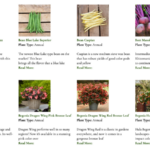



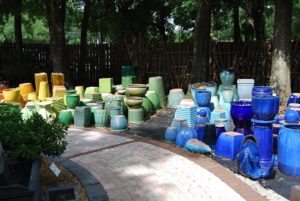
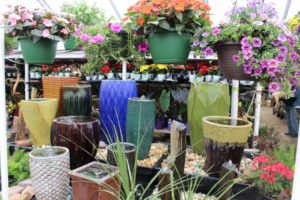


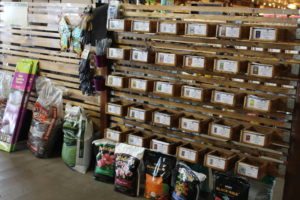
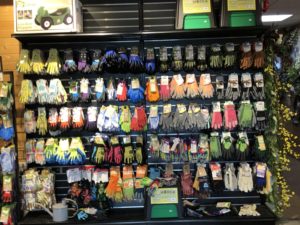
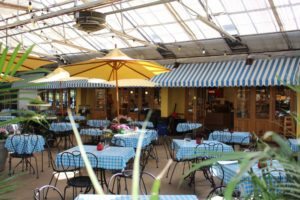
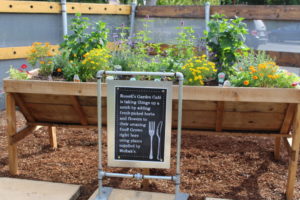
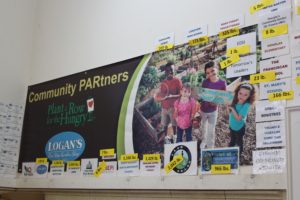
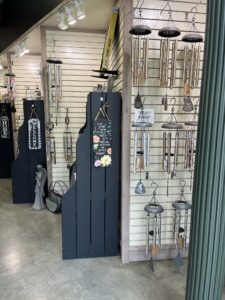


 Videos
Videos





